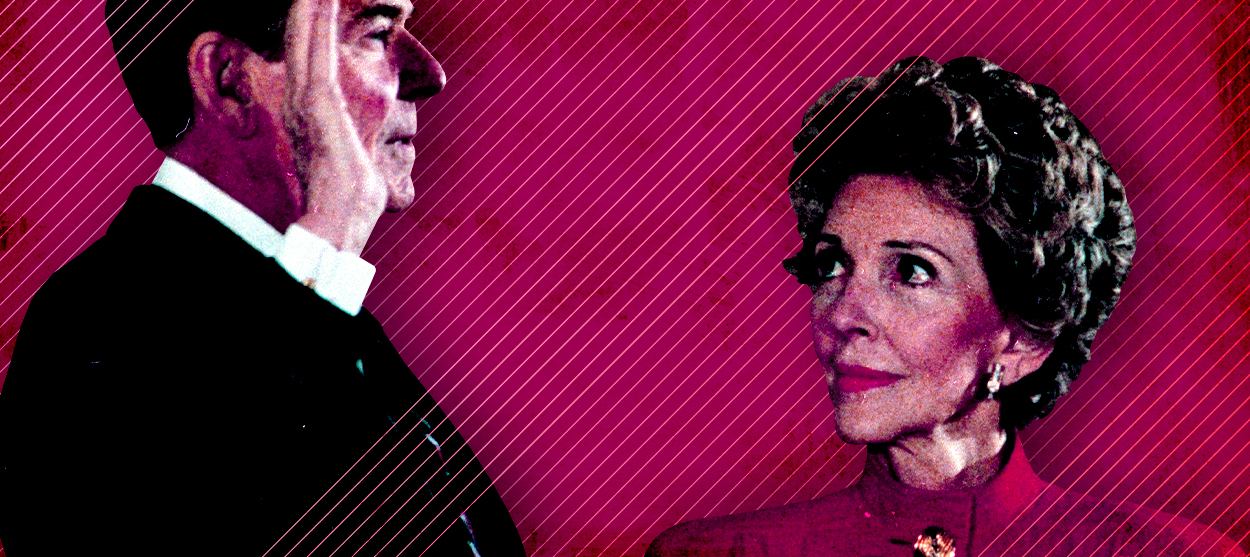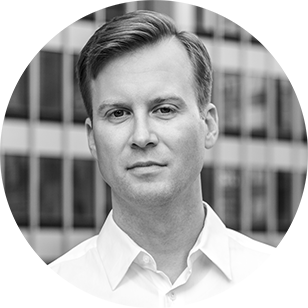The Reagans shows the roots of America's individualism problem
They put conservatism on the path that would ultimately give us President Trump


A free daily email with the biggest news stories of the day – and the best features from TheWeek.com
You are now subscribed
Your newsletter sign-up was successful
As president, Donald Trump has had a bizarre habit of comparing himself to Abraham Lincoln. But Ronald Reagan is probably the much better example for understanding Trump's rise to power and how he has governed. That's the implicit message of Showtime's four-part series, The Reagans, concluding Sunday night. Though neither Trump's name nor image appear in any of the four hour-long episodes, the series sets up clear parallels between the two men and their presidencies, a theme acknowledged by most of the major coverage of the show.
On the surface, Reagan's sunny disposition and boundless optimism couldn't be a starker contrast from Trump's vision of "American carnage." But as The Reagans, directed by Matt Tyrnauer, suggests, Reagan's career path from Hollywood celebrity to Commander in Chief — his campaign slogan "Let's make America great again," his emphasis on law and order politics, his slashing of government regulations, his cozying up to the religious right, and his appeals to white racists through dog whistles about "states' rights" and "welfare queens" — all feels frighteningly familiar in the Trump era, even if Trump has never limited himself to just coded language.
More than those connections between Reagan and Trump, however, the biggest takeaway from the Showtime documentary is how Reagan's drastic transformation of the GOP from a restrained party devoted to limited — but effective — government into a rabid political movement turned against the notion of government itself laid the foundation for Trump's direct assault on American democracy and his complete dereliction of duty as president. As Tyrnauer said to me on a recent call from his home in Los Angeles, "This is a story about our current political situation."
The Week
Escape your echo chamber. Get the facts behind the news, plus analysis from multiple perspectives.

Sign up for The Week's Free Newsletters
From our morning news briefing to a weekly Good News Newsletter, get the best of The Week delivered directly to your inbox.
From our morning news briefing to a weekly Good News Newsletter, get the best of The Week delivered directly to your inbox.
In Reagan, the cult of rugged individualism overtook the Republican Party and remade American politics. Now, 40 years later amid a global pandemic, that unbridled individualism has shown its deadly dimensions in Trump and the Republicans' lack of response to COVID-19. Their dismissal of a coordinated government response in favor of encouraging Americans to decide what they think best, including whether or not to wear masks, has spelled catastrophe. And it's evident in the millions of Americans who — in refusing to wear masks, practice social distance, and momentarily deny their self-gratification — have selfishly exploited the language of "individual responsibility" as license for their own recklessness.
Elected during a severe economic slump and with American morale slipping, Reagan, the son of two staunch Democrats and a former Roosevelt Democrat himself, rode to power on Americans' growing distrust of government, but he twisted that sentiment to particularly extreme ends. The Reagans shows the new president declaring in his first inaugural address in 1981, "In this present crisis, government is not the solution to our problem; government is the problem."
That became the reigning ethos of the Reagan era and of the GOP ever since. In the series' most chilling moment, First Lady Nancy Reagan propounds the couple's anti-government philosophy as she icily says to a reporter: "Somebody will say, 'we have a problem,' and the immediate response is, 'well, can't government do something about that,' instead of, 'can't I do something about that?'"
That's basically been the attitude of Trump and the Republicans when it comes to the coronavirus. Despite clear scientific consensus and repeated recommendations from the CDC, Trump and most Republican governors have failed to issue lockdown orders or mask mandates. Even with more than 275,000 dead Americans and numbers likely to surge over the holiday season, some Republicans are now abandoning the language of personal responsibility for something more defiant. "My body, my choice," tweeted the incoming Georgia Congresswoman and QAnon adherent, Marjorie Taylor Greene, without any trace of irony last month.
A free daily email with the biggest news stories of the day – and the best features from TheWeek.com
In South Dakota, where coronavirus is ravaging the state, with recent test positivity rates at over 40 percent and death counts spiking, the state's Republican governor and Trump sycophant Kristi Noem still refuses to order a mask mandate. After President-elect Joe Biden, responding to those escalating numbers in South Dakota and elsewhere, tweeted this week that "help is on the way," Noem clapped back on Twitter with her own message: a gif of Ronald Reagan and his famous quote, "I'm from the government, and I'm here to help" — what he described in 1986 as "the nine most terrifying words in the English language."
Invoking Reagan has long been a go-to move for GOP lawmakers, but Noem's use of his words to mock Biden while her citizens die reflects Trump's caustic influence on the party, not the Gipper's. With Republican politicians falling in line on Trump's every disastrous and deranged position, from coronavirus to fantastical election conspiracies, Reagan's cult of individual responsibility has given way to a personality cult centered on one individual.
No matter that Trump has never taken responsibility for anything.
Neil J. Young is a historian and the author of We Gather Together: The Religious Right and the Problem of Interfaith Politics. He writes frequently on American politics, culture, and religion for publications including The New York Times, The Atlantic, the Los Angeles Times, HuffPost, Vox, and Politico. He co-hosts the history podcast Past Present.
